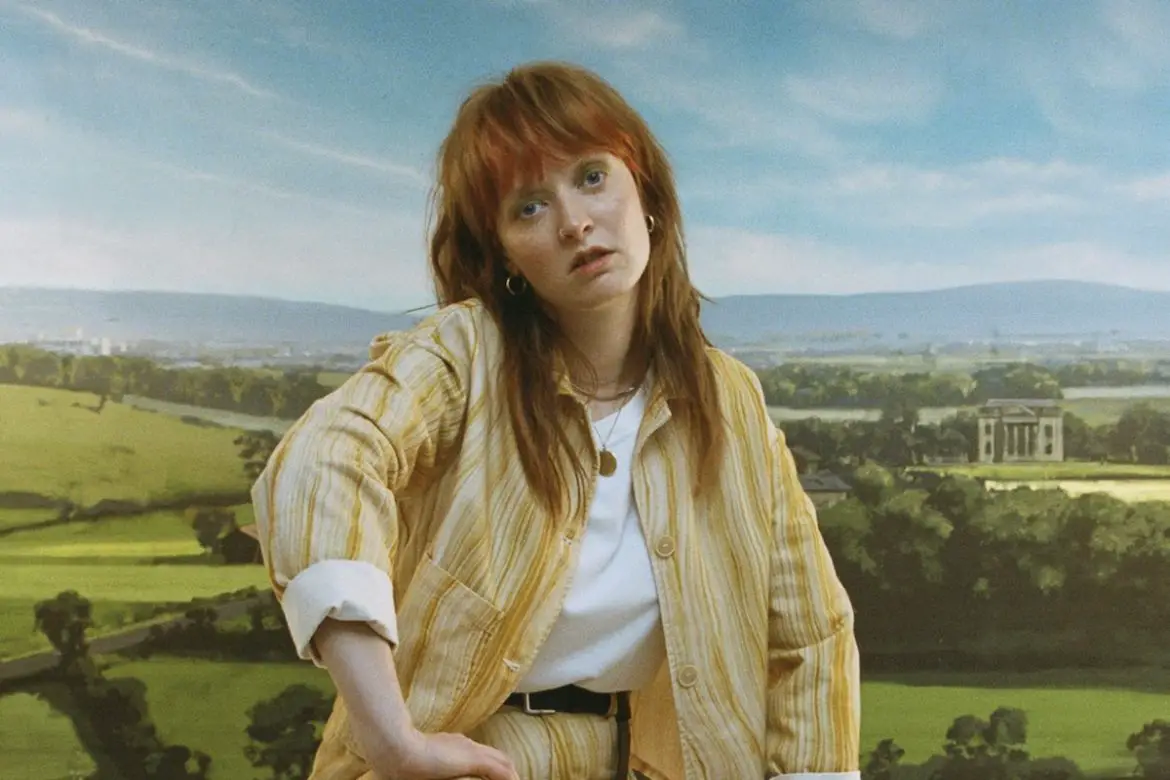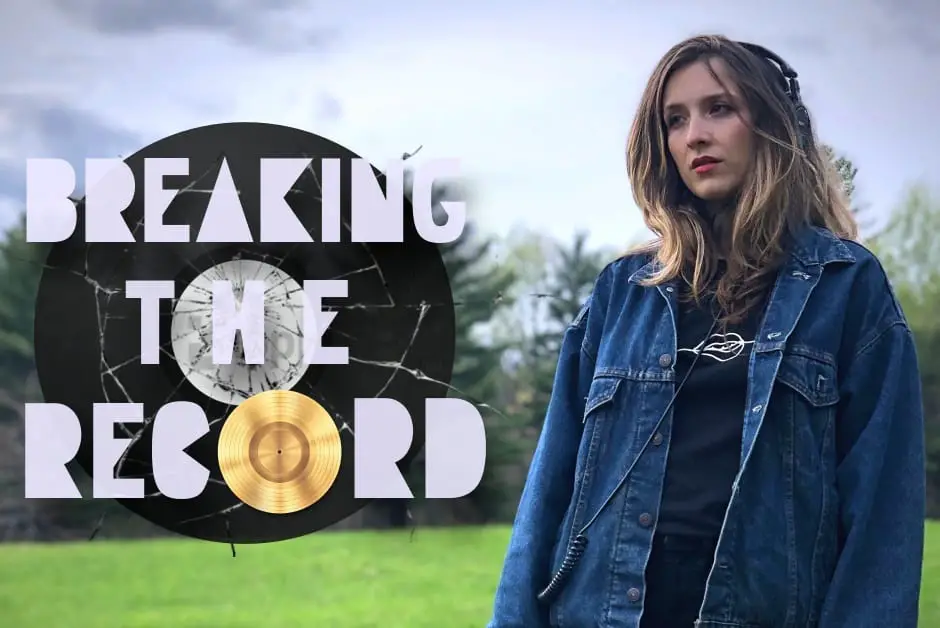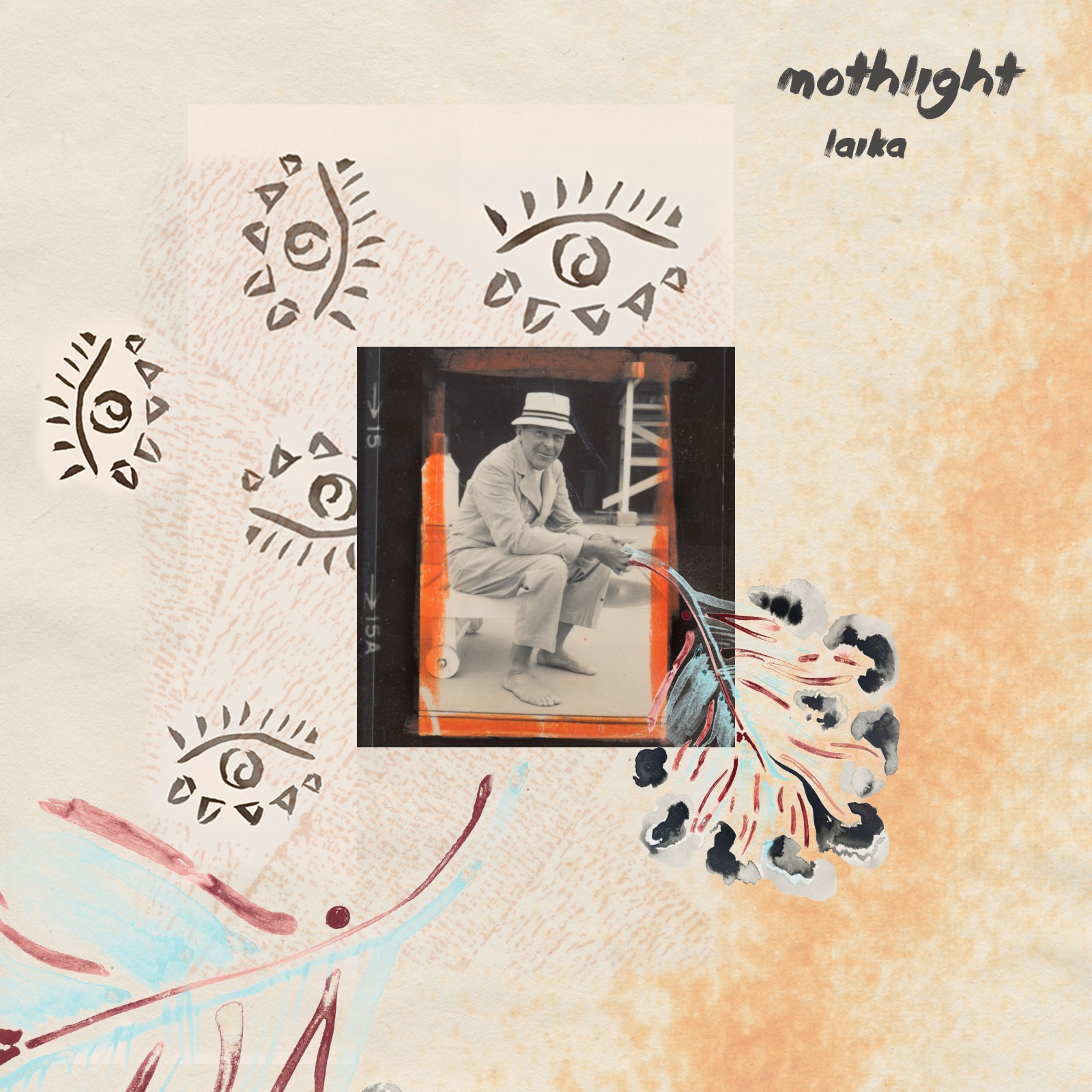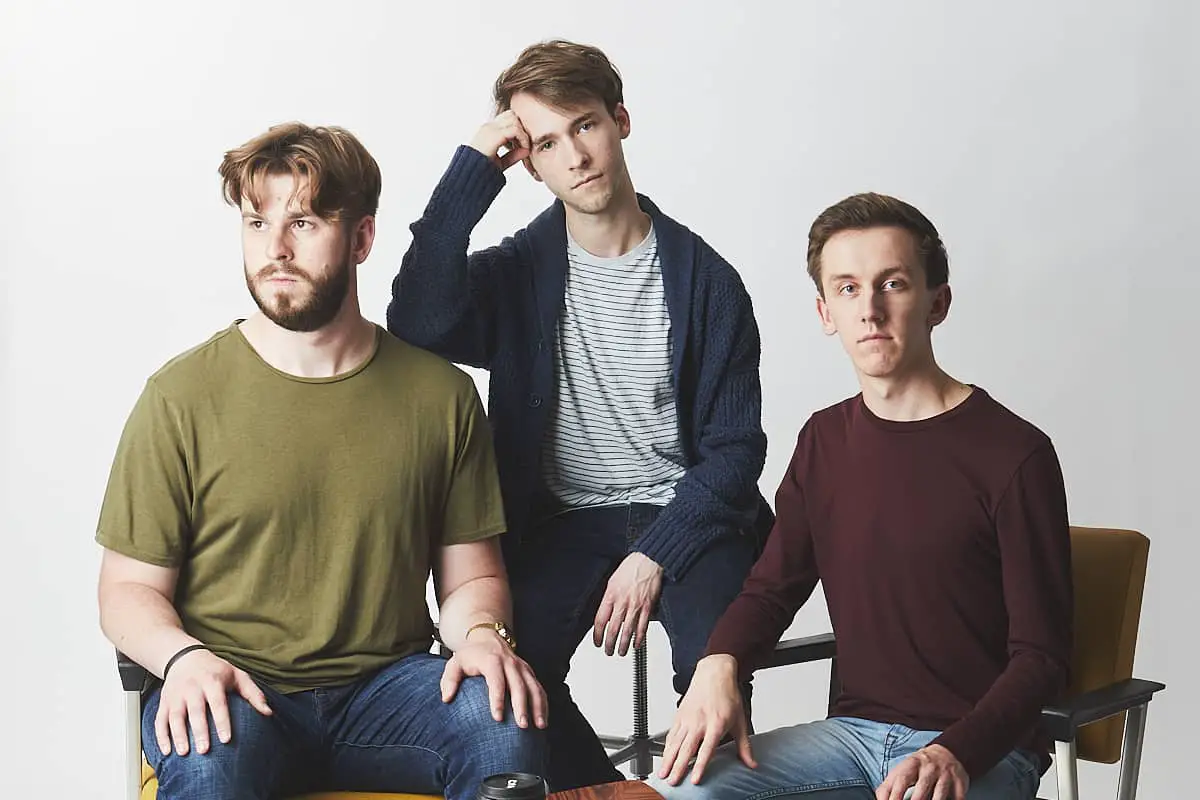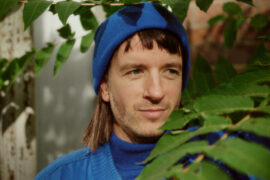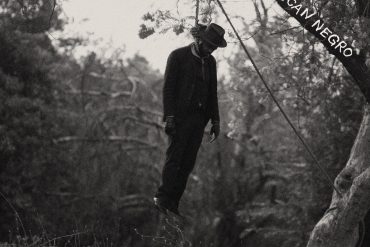Irish singer/songwriter Orla Gartland opens up about her debut album, writing in lockdown, and who the ‘Woman on the Internet’ is.
Stream: ‘Zombie!’ – Orla Gartland
Since the record is due to come out in August, I hope that it can be the soundtrack for a better time, despite the fact that it was being written during lockdown.
On the internet, we usually trade our personalities for “personal brands”, we showcase the highest highs of our time being, and develop an extraordinary talent of pretending. Pretending our lives are as polished as our Instagram fees, pretending to have only ever met the bright side of life, pretending to be perfect. We all know, it’s not real. Still, we pretend everyday.
“Am I the only one pretending?” is a sentence that many ask themselves on a frequent basis, and it is coincidentally the chorus of Orla Gartland’s song “Pretending,” one of the leading singles taken off her forthcoming debut album, Woman on the Internet (set for release August 20th, 2021).
I saw the face in the window
lighting up a cigarette
smokey brown eyeshadow
I learnt it from a woman on the internet
how the hell have you been babe?
put your coat on the bed
let me get you a cup
sip it up up, right to your head
all the people over there
they don’t seem to have a care
I’m so fucking self aware it’s exhausting
and no matter how I try
I repeat it every night, every night, every night
I’m done pretending, pretending
done pretending, pretending
all of my heroes are way more sad than me
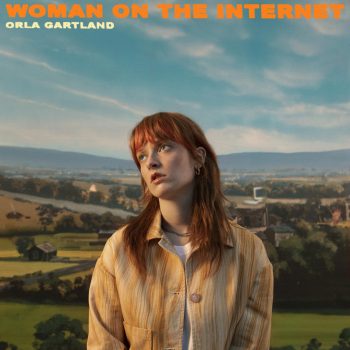
The artist, born and bred in Dublin, is self-made on the Internet. When she was 14 years old, she started uploading videos of her music, showcasing her talent. On the day Gartland finished school, she packed her bags and moved to London, where she spent the next few years writing, recording, touring, and gathering fans apace.
Gartland’s debut record, Woman on the Internet, follows her first two EPs, 2019’s Why Am I Like This? and 2020’s Freckle Season. After having her song “Did It to Myself” featured in the BBC 3 series “Normal People” last year, her fanbase steadily grew. What sets Gartland apart is her honest songwriting and her contagious energy on a live stage. Not only did she write her debut LP by herself, but she also produced it and released it under her own label, New Friends.
when all of your body’s burning up
when all of your body’s burning up
you live like a zombie, turn it off
push it down and it comes back round again
you’re not a bad guy, not a bad guy
but you do this all the damn time
you go quiet and you fight it
you don’t know to feel
all of this rage in your hands
passed on down from your old man
and now somehow it’s my fault
who is this monster on the phone?
jacked up on your testosterone
And I hate it I hate it…!
– “Zombie!” Orla Gartland
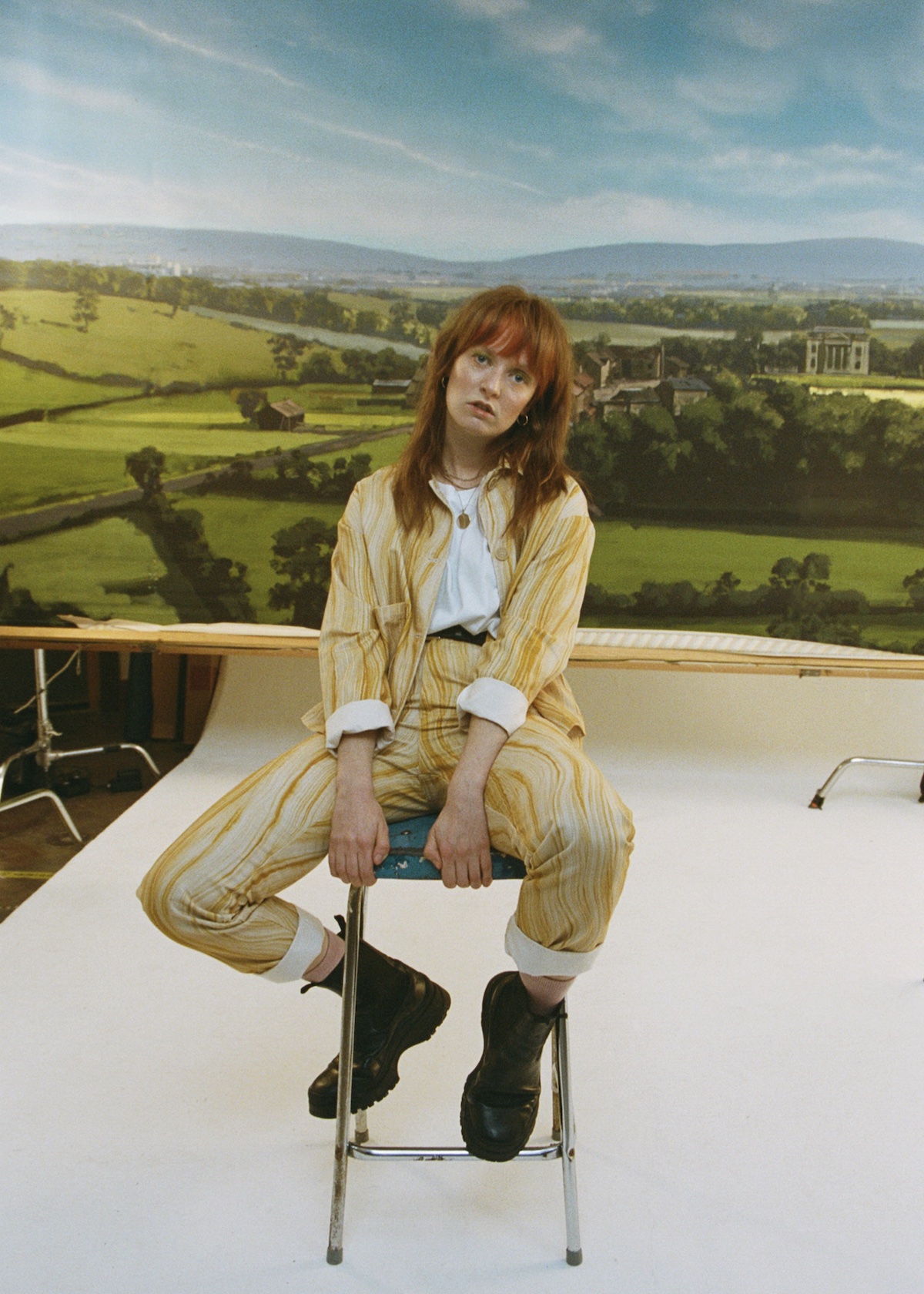
Even though the songs on the record are crafted under lockdown confinement circumstances, the soundtrack feels rather well-fitting for a post-pandemic world – one that’s ready to dance.
So far, Gartland has released the tracks “Zombie!,” “Pretending,” “More Like You,” and now “Do You Mind?”
Her latest single of the record, “Do You Mind?” is a song about the aftermath of a cheating partner: Sometimes, Gartland confesses, the aftermath of pain can be more painful than the pain at its peak:
come take it all, I wanna know
if you’re trying to be honest
then why’d you break your promise?
you said you were mine
I wanna fall for you again
so much easier the first time
long before the decline
you forgot that you said you were mine
how are you so mechanical? I was shouting you just nodded
was it everything you wanted when you fell into those arms?
do you mind? if don’t stop by
‘cause when I close my eyes I think of you beside her
it’s a tired reminder of what I didn’t wanna know
Gartland’s four singles represent the variety of musical styles her debut album offers her listeners’ ears – Woman on the Internet is a true rollercoaster of all sorts of emotions, just like the bustling chaos of our 20s.
Atwood Magazine met Orla Gartland just before the release of her latest single and talked about songwriting in lockdown, being a female producer, and growing up in the day and age of the Internet.
I love writing about very specific feelings, but when someone can insert their own narrative into it, that’s even cooler because then the song has a life of its own. It’s not just bound to my really niche thing.
— —
:: pre-order/stream Woman on the Internet here ::
A CONVERSATION WITH ORLA GARTLAND
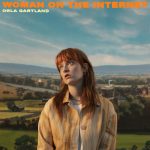
Atwood Magazine: Hi Orla! Thank you for taking the time to speak to me today!
Orla Gartland: Thanks for having me!
First of all, your record is amazing. I listened to it a few times and I really loved it. You released a few singles and EPs beforehand, so how does it feel to finally be releasing your debut record?
Orla Gartland: Oh my god. I mean, I can actually let you how it feels when it’s released in August. It’s getting real now, and that feels really good. It feels like it’s been years in the making, so it feels quite surreal, but right at the same time.
I can imagine. It’s a great record. So, diving into the record, the first track “Things That I’ve Learned” really caught my attention and blew my mind. What was the inspiration behind it?
Orla Gartland: The album itself is not a concept record in the sense that it was set to be written about a certain thing. I just wanted to write songs that were locked to a particular time. Once I had most of the songs, I looked at the threads that run through them. I did not want this record to be a pure breakup album or an angry album. To me, it’s a lot more interesting to write songs and then be like, “okay, what do they have in common?”. I realized that there is a lot of growing up in this album. I didn’t think that I was consciously thinking about growing up, but obviously I was, because songwriting is like a diary. It is like finding threads in your thoughts. That is really interesting to me. Towards the end I realized that there was a lot about identity and growing into the person you are on this record. I am in my mid-20s, so that is on the front of my mind a lot. When I had most the songs I wanted to put on the record, I wanted a title track. First of all, I also really like the title “things that I’ve learned”, because it’s almost like the beginning of a list. It’s quiet a good beginning. It’s like you are presenting something to people, like saying “here are the things that I’ve learned. So, it wasn’t the album title in the end, but I like the idea of having a “weird intro.”
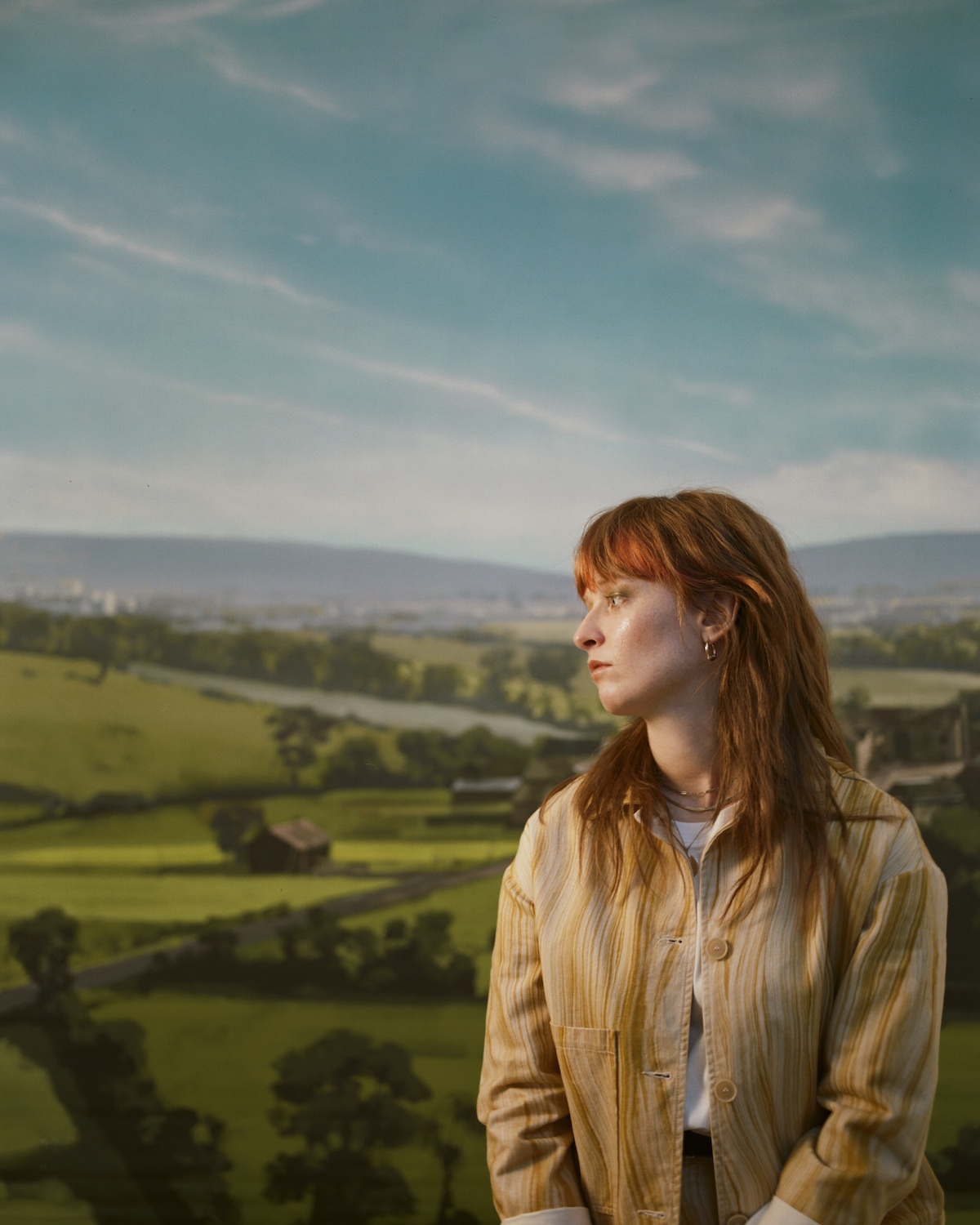
It is an excellent opening track, the lyrics really resonated with me. Were any of the songs on Woman on the Internet written during the pandemic? If so, how did it influence your process?
Orla Gartland:It was written during the pandemic. But personally, I resent the idea of lockdown music. I have been building up to this point in my career for so long, that I didn’t want a bunch of songs that were about COVID. Maybe that’s selfish, but I didn’t want this sad lockdown music on the record. And that’s actually what’s really nice about the record too. Since the record is due to come out in August, I hope that it can be the soundtrack for a better time, despite the fact that it was being written during lockdown. There were a lot of albums that came out last year, which I really loved but they will always be locked into that time for me when I think back. For example, the Haim or the Phoebe Bridgers album are amazing, but I will listen back to them in five year’s time and be like, “oh, that was that weird year”. I didn’t really want the connection to this time in my album, I wanted it to stand up on its own more rather than be defined by a time that was quite murky for everyone.
But yes, the lockdown circumstance affected the writing process of the album. In this sense, it affected it in a very positive way. I was always hyper-focussed and had so much time. I love writing slowly, like focussing on a verse for an entire day or spending a whole afternoon searching for the right snare sound. It allowed me to have the time without any distractions to really go in on those things. The less bright side of this was that it felt hard to write about life when life was paused. A lot of the songs came from ideas I had pre-lockdown. Rather than starting loads of things from scratch during lockdown, I was trying to be as resourceful as possible with the ideas I had the year before. So I went through voice memos, and thought “I put this down at the time, but I think this is worth a day”. Rather than starting from scratch it was more like a patchwork of previously existing ideas that just hadn’t found their way. That really helped, since last year was so uninspiring, being indoors all day, not seeing friends and not having any life. I really like to continue working in that way of working. I rather just write 10 really good songs a year, than hundreds of new songs I am not really satisfied with.
That’s really good. So you give the ideas the room that they deserve?
Orla Gartland: Yeah, exactly.
That is a great approach, because creativity needs more than one try.
Orla Gartland: Totally. Some of my favourite songs on the record have been the ones that have been returned to and the chorus has been rerun for 40 times. That process is not fun. Once you get to that point, it’s definitely not as enjoyable as when it comes out in 15 minutes. But I think it’s a myth that the best things come quick. In my experience, some of my favourite songs on the album were the ones that were like a real slog to get right. They had to be revised, lots of times. Each time you open the file, you’re still convinced that there’s still something in it. “More like you” took ages. It has so many different versions of it, like lots of different lives. I always kind of liked something about it. It’s weird when you listen to music. You just don’t have the backstory of it. I don’t listen to a new song on the radio and think of how long the process was to make it what it is. You just take it at face value. So that’s kind of interesting, isn’t it?
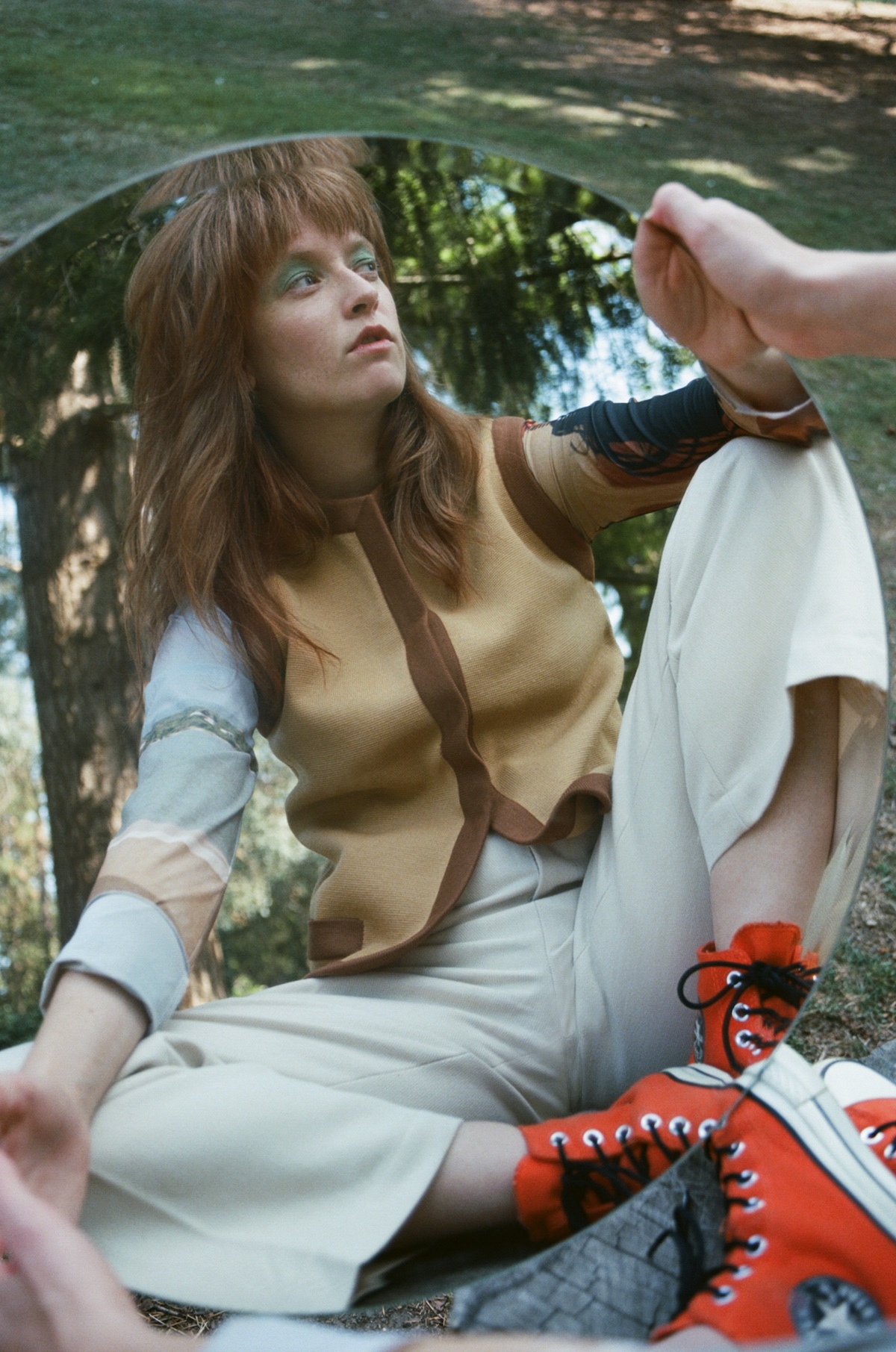
You just gave me the perfect bridge to the next question. “More Like You” showcases self-doubt in time and age of the internet, this extreme vulnerability that a whole generation tries to cover up with over-polished Instagram selfies. How was it like to write a song about such a personal and fragile feeling?
Orla Gartland: It felt sort of exposing at first, the song has quiet literal lyrics. But I felt very validated when it came out. And people were projecting their own meaning on it in a really cool way. I wrote that song about the internet, self-doubt and comparison, but specifically for me, it was about my best friend’s other best friend. This girl I don’t necessarily know that well, but we have this person in common in our lives. She is so central to both of us. And her other best friend is the girl I didn’t know much about, which actually made her more of a threat to me. I thought she was so funny, pretty and great. When I did meet her, I had my expectations on a quiet high pedestal. When I actually met her then, she was actually that great. It was like the perfect cocktail for like some very real self-doubt. But what was cool to me is when the song came out, I got a lot of messages from people saying that it reminded them of a situation with an ex’s new partner. I thought that was so cool, I think that’s when songwriting is great. I love writing about very specific feelings, but when someone can insert their own narrative into it, that’s even cooler because then the song has a life of its own. It’s not just bound to my really niche thing.
I love the way you sing
oh I’ve been trying copy every word you say
I love the way you think,
you have this way of knowing it’ll be ok
where’d you get that confidence from?
’cause you wear it like a coat
all this feeling second best, it’s got me by the throat
I know that I’ve been obsessing in the worst way
I heard it from a woman on the internet
she told me to eat well and try to love myself
then maybe I won’t wish that I was someone else
(tell me how) to be more like you
That’s the life that fans give to a song. Of your upcoming record, you have already released three singles. What made you pick exactly those three tracks?
Orla Gartland: I wanted to show the variety of the record and what I can do. I think the album has a good range. I love folk-ballady singer-songwriter moments, but I also love playing with my band and pop music. I think, “pretending”, “more like you” and “Zombie!” are not a million miles away from one another, but also not the closest. In my head, I think on the album, most of the songs have like a “sister-song”. The songs have like a partner on the album, which makes them feel a little less alone in that style. When I picked the singles, I wanted to make sure that I am not picking the ones that are too similar, just to have a bit more of an identity, a bit more of a range. I mean, live shows haven’t happened for a long time, but I am always thinking about them. With singles, you have a chance to push the songs that won’t necessarily be the favourites. You can control that. You have a narrative where you can be like, “which songs do I want people to scream out when I play them?”. I think “Zombie!” is one of the songs that I’ll play if I am losing a crowd or I am playing a supporting slot, and I feel like the people’s attention is slipping. All you want in that moment is a song that is energetic and loud. I think with choosing “Zombie!” in particular, I was like, I really want to get that high moment of a set.
When I listened to “Zombie!” I kept imagining how amazing that song would be live.
Orla Gartland: It’s gonna be so fun. It’s so weird, because I obviously haven’t played any of these. Well, I’ve played them with my band for some live sessions, which was nice, but never for a gig. Playing them is gonna be like this big release of pent-up energy.
The first post-lockdown gigs are going to be wild, I think. When I look into the credits of your songs, I saw that you have co-produced them. With producing being so male-dominated, how did you navigate the scene? Were there any roadblocks?
Orla Gartland: Not in making my album. I suppose it’s easier since I was the artist and the boss at the same time. I am releasing through my own label, so there was no higher power dictating the creative decisions. That definitely helped, like I did not have to fight for space in rooms with my name on the song. But I do some writing for other people, and I am slowly moving to producing for other people too. And in those spaces, I definitely feel like I have to work twice as hard sometimes to be listened to or be taken seriously. On my project, I have been a little bit (almost) spoilt with regards to the experience as a female producer, because it hasn’t been a defining factor. It’s when you start to go into different rooms and work your way to other areas of the industry where you get to introduce yourself, that’s where I feel it. I feel it more, and I think I will get there. What’s exciting to me is to flip it on its head, because it’s easy to be really down about how few female producers there are. It’s really sad. But on the flip side, I’m seeing a lot of female artists and friends who are starting to produce or co-produce. It’s becoming less of a big deal. It’s a big deal for them, but it becomes less of a wow moment. Also, many of my artist friends have been producing their own stuff for years, but have been to afraid to ask for the credit that ends up in the Spotify thing. I definitely see people around me growing in confidence. I live with a girl called Lauren Aquilina, and she has a couple of writing and production credits on the new Demi Lovato album. She’s been a top liner for years. She co-produced those songs. Sometimes you are sitting in the same rooms and those roles aren’t defined. Maybe, a couple of years ago, she wouldn’t have even felt comfortable asking for that credit. Whereas now, because of people around her and the spirit of what’s happening right now, I think she felt confident enough to be like, “Hey, I deserve a co-production credit.”
It’s this whole taking up space thing. I am glad it’s going in that direction.
Orla Gartland: It’s totally that. I think the skill set is not a male-specific thing, and never has been. What’s so exciting to me about this new wave of female producers is that it is a bit more of an unusual experience. Therefore, if females do think in a different way, which I don’t agree that they do, but even if they do, then that’s even more exciting, because that means that there’s a whole different side of thinking about production, a whole completely different approach that we haven’t even heard yet, in mainstream music in particular. And that’s so exciting for the future. It becomes less niche and more mainstream for females to produce tracks. That’s really exciting.
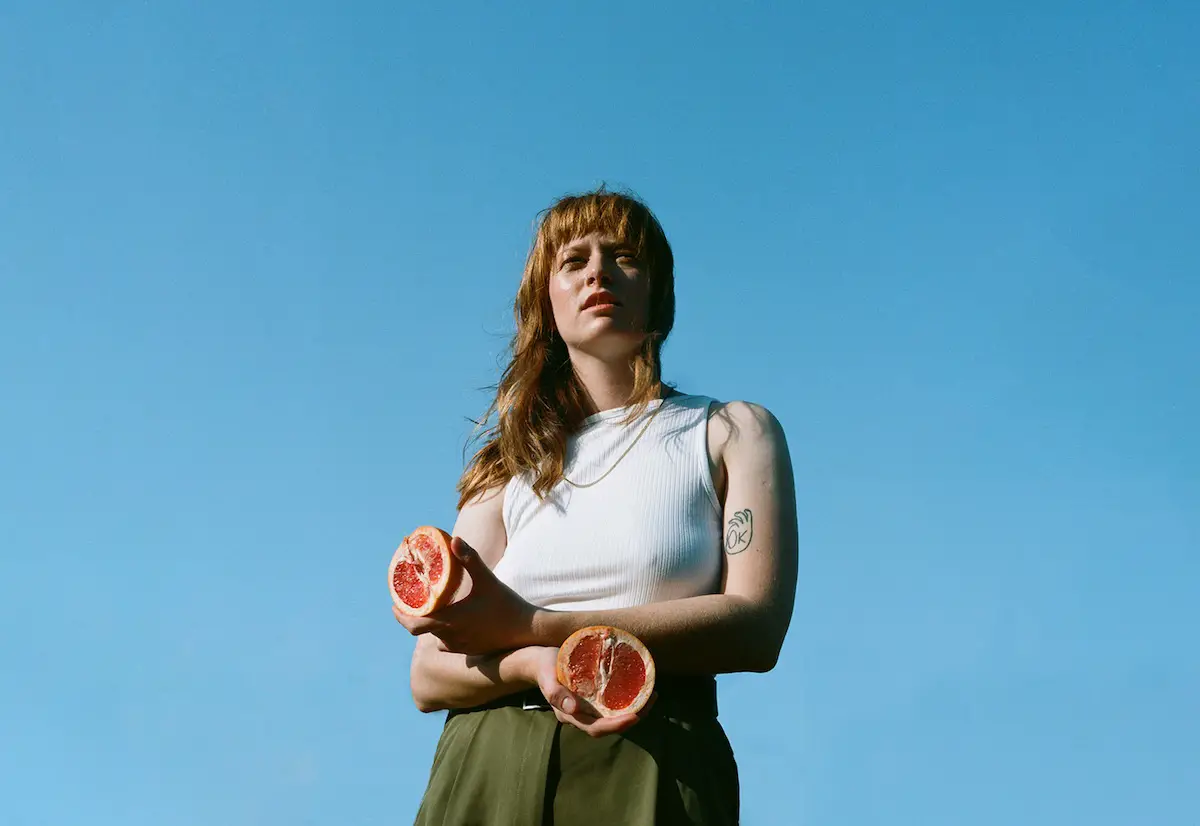
That is so exciting indeed. Which musical genres did you grow up listening to and how have those influenced your song-crafting?
Orla Gartland: I always wish like I had a cool answer for this. I always love when people are like “I was raised on Joni Mitchell”, but my parents had horrible tastes. My dad listened to Van Morrison, who is this northern Irish guy that does kind of crooner music. My mom doesn’t even really like music, to be honest. She listened to whatever pop was on the radio, but she didn’t have a specific taste. I think I had to discover my tastes for myself, rather than being given them. That means that I was late to the game for some artists, for example, I didn’t hear some songwriter classics like Joni Mitchell until I was 17 years old.
That is impressive! So, your song “Zombie!” is very poetic and metaphorical. What does “Zombie!” stand for?
Orla Gartland: The “zombie” is about being with someone who can’t really express themselves. It just became a metaphor for someone who represses their feelings. I guess it’s specifically guys. It’s written about one specific boy, but I think when I was in that situation, I was frustrated at him. I really thought about how I was frustrated at the bigger picture. The idea that even today, when we are becoming so much more progressive, a guy still can’t express his feelings open the same way a girl can. Just among their friends or whatever. I’ve always been surprised. Even though my group of friends and everyone I am around is super progressive and forward facing, it’s still there. The pressure to be totally fine all the time. I think it’s still there, like that sense of vulnerability being a little bit harder to get to. I like the idea of writing a song that is quite up and sad sounding, even though it is a sad topic.
The “zombie” is about being with someone who can’t really express themselves. It just became a metaphor for someone who represses their feelings. I guess it’s specifically guys: The idea that even today, when we are becoming so much more progressive, a guy still can’t express his feelings open the same way a girl can. Just among their friends or whatever.
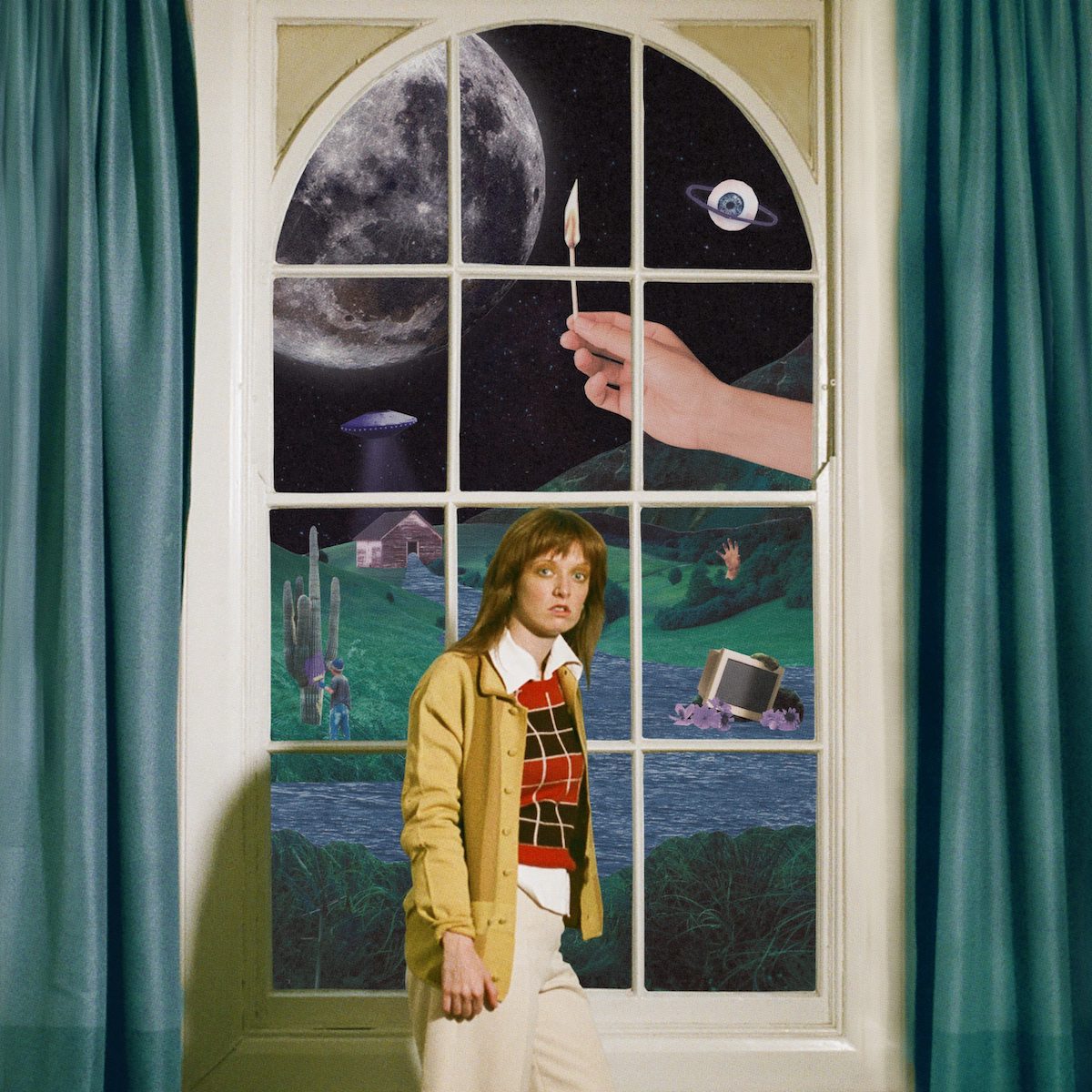
When I first listened to it, it was unlike anything I have really ever listened to before. It was like stepping into a new world.
Orla Gartland: That’s great. One of my favourite things to do is to take subjects that are quite heavy and wrap them slightly lighter, digestible cases so you can be bobbing around to a song and enjoying it. Things that work on any kind of two levels are a good thing to me.
I really resonated with it. I saw the zombie as a sort of self-doubt voice in your head that tries to get you down.
Orla Gartland: That’s exactly what we were saying. It’s like “More Like You”: It’s so interesting when songs get their own lives.
So, I personally discovered your music in the midst of last year’s lockdown when I watched the TV show, “Normal People.” I heard your song “did it to myself” in a scene. The show ended up being quite popular - did having the song be featured change things for you?
Orla Gartland: Yeah, it did! I actually didn’t think that it was going to, since I knew before the series was put out that the song would be in it. I was really excited about the idea. I’ve read the books, but it was really hard know how big it was going to be, since it was a BBC three production and not some big, flashy Netflix thing. I was managing my expectations for it, to be honest, I thought it would be cool, but I didn’t think it would bring any new people. But it definitely did. And the show really took off. It’s just really nice. If I heard an artist’s song in a series that was bad, I wouldn’t judge the artist, because it’s not their fault. But to be aligned with something that I actually enjoyed watching was really nice. It’s the most truthful depiction of Ireland, growing up and being that age that I have ever seen. It’s exactly how it is. In other films (especially in America) it is usually portrayed in a totally awful, stereotypical way.
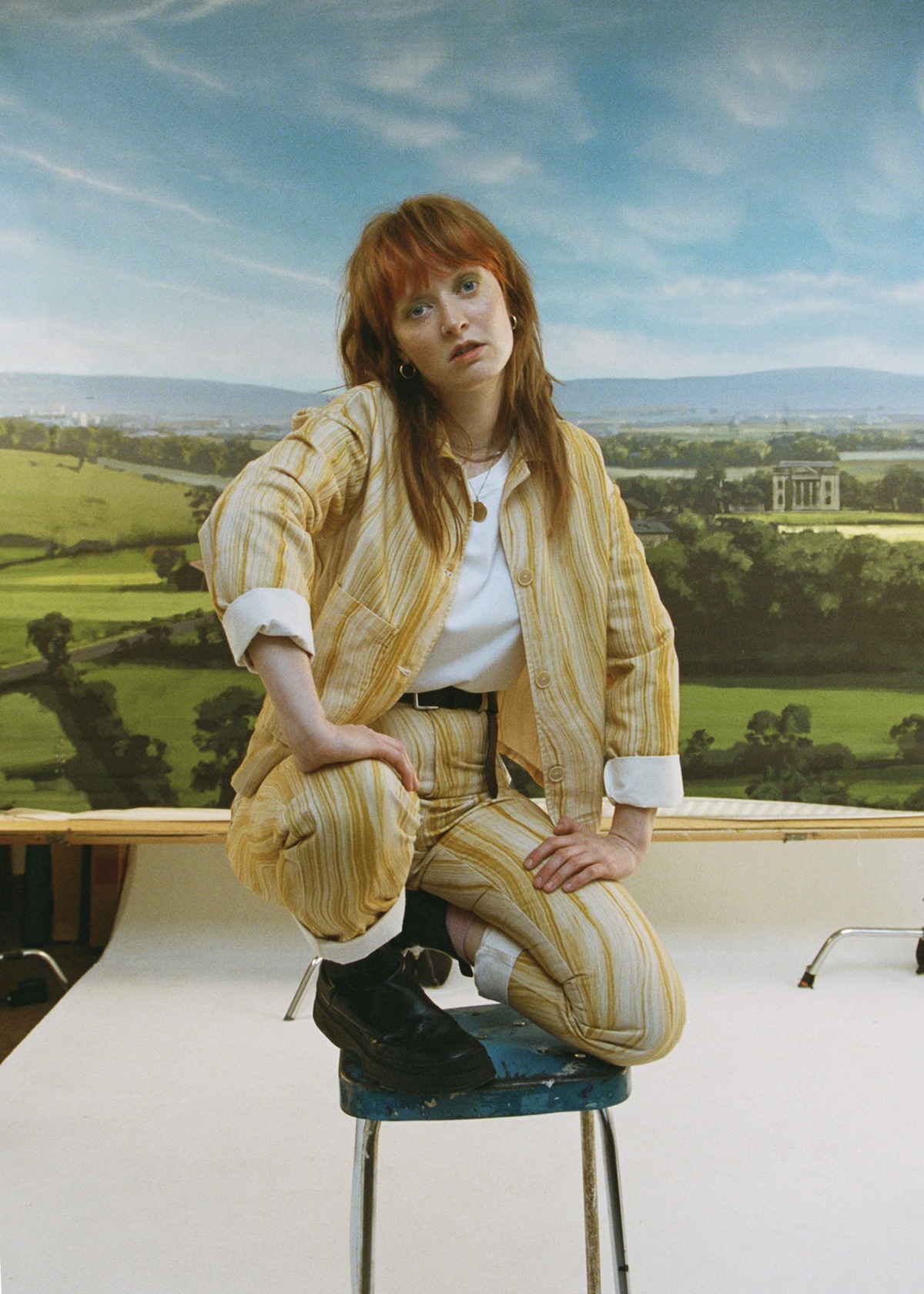
One of my favourite things to do is to take subjects that are quite heavy and wrap them slightly lighter, digestible cases so you can be bobbing around to a song and enjoying it. Things that work on any kind of two levels are a good thing to me.
I loved the scene where they played your song. It was like a still where the main character walked, and your song was in the back. It felt like the song was her thoughts.
Orla Gartland: I think that’s such a credit to the show’s director, Lenny. He’s done a couple of great things. I love when music is in the background of a scene, and it could be a secondary thing, but if you can link it with the scene that’s just great.
It’s a great song! Moving on, listening to your new record, one coherent thing is the brutal and beautiful honesty in your lyrics. Is this something that always comes naturally to you on the first try or is it a process?
Orla Gartland: It is both. It is very instinctive for me to write songs. I remember when I first wrote songs I remember my parents asked me how I do it. And I was like, I just do it. Even when I was writing really bad songs, there was always something that was instinctive about it. But with the honesty thing, I think it’s something I’ve become more confident over the past couple of years with. When I first started out, I would cover things in metaphors, I would hide behind flowery language to the extent of where like you would actually have no idea what the song meant. And that’s fine for certain music. When I listen to Bon Iver, I have no idea what he is singing about and it doesn’t bother me at all. The kind of music, the kind of artists I really love are like Phoebe Bridgers for example. I think it’s the epitome of super literal lyrics. They don’t take anything away, they actually add by being super specific. They are so imagery based. I think listening to artists like her made me want to be quiet specific, and maybe embrace the idea that it’s okay for people to know what exactly the song is about.
It’s also more accessible to have literal than metaphorical lyrics, I think.
Orla Gartland: Totally. Well, you think in a way that it would do the opposite. You think if you write about your very specific situation, that you are shutting people out from finding themselves in it, since it is your specific situation. But like I said, it’s like “more like you”. It is about a thing that I thought was so specific to me, and I wrote about it. When you look through that lens, you’re like oh, of course, that’s what it’s about. But even still there is room for people to find their own thing. I think it’s something I’ve tried to do more deliberately.
Songwriting is all about storytelling. What stories and narratives are you wanting to communicate across with this record?
Orla Gartland: It’s kind of what I said at the beginning. I think it’s the idea of being this weird age, and kind of feeling a bit in between things. Like not being a full adult yet, but definitely need to accept that I am on that cusp. Kind of just learning to embrace that, like “the woman on the internet”, this character that appears in a couple of songs. She is not anyone in particular, I think of it as this Wizard of Oz, online guru-type person. She appears in “more like you” and “pretending.” I think of her as someone who represents the kind of things I turn to and I’m feeling quite lost.
And I am really bad at admitting when I’m in a bad place. I’m very stoic and stiff upper lip, not hard on the sleeve at all. One of the hardest things for me to do is to admit when I’m feeling really lost. This “woman on the internet” person is the person I turn to when I am feeling lost. I think as well as growing up and identity, the last thing that runs through the album is me trying to embrace that. Like the lostness when I’m in it, learn to accept it, and communicate it.
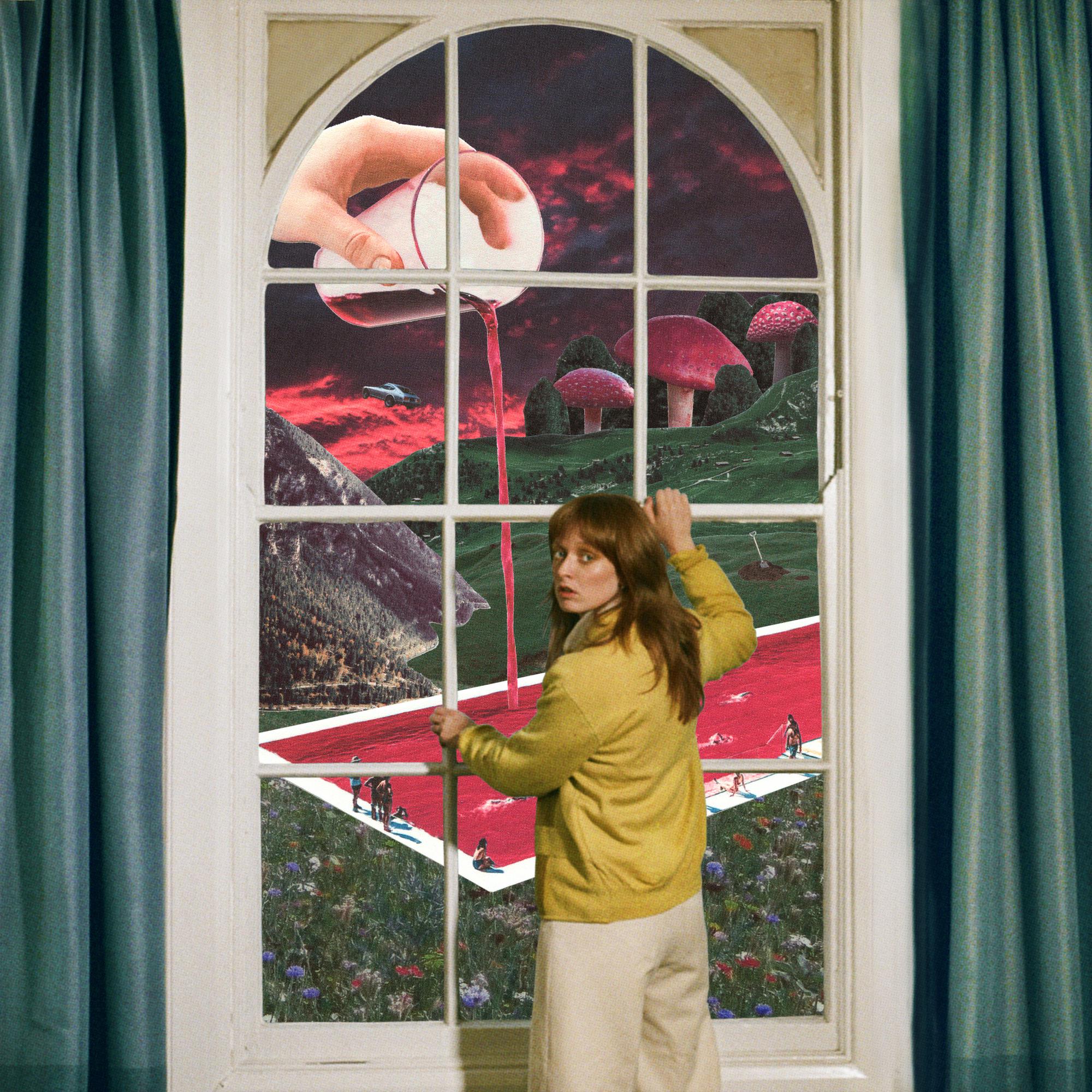
The record ends with “Bloodline / Difficult Things,” which is also the longest song on the whole record. Why did you choose exactly this song as the closing track?
Orla Gartland: It’s a song about my family, and I have never written a song about my family before. Yeah, there wasn’t really much thought. Apart from that, when I wrote it, “bloodline”, was the main body of the song. I knew I had a really good feeling about that song. When I wrote this bit at the end, I kind of wanted it to be almost like a little hidden. That to me is what made it feel like a closing track for some reason.
I really liked it. What was the last song you listened to on Spotify?
Orla Gartland: Great question! Let’s have a look… I hope it’s nothing embarrassing. It’s fine if it is. I need to have a look at the playlists, I think it was on my laptop. What was the last one you listened to?
“brutal” by Olivia Rodrigo.
Orla Gartland: That’s my last one as well!
It’s a great song – I wish it existed when I was a teenager.
Orla Gartland: I wish the whole album existed when I was a teenager!
Final question: “Do You Mind?” is your new single. Tell me more about that: What inspired it, and what was the backstory of it?
Orla Gartland: It’s more of a chilled out one. It’s one of the most different sounding ones on the record. I have a real fascination with writing about sad situations, but not at the height of the drama. Rather than writing about a breakup on its peak, when you are throwing plates and shouting at each other, what I find much more sad, is when you pass them a year or two after in the street. That, to me, is actually much more heartbreaking, because it’s quite subtle. And you might even be able to have a conversation with them. But your heart is kinda breaking through it. I think that’s actually a bit heavier. So, the kind of mundane everyday mess of a situation after some time has passed. The song was about being cheated on. A couple of years later, it’s about seeing that person, and that person wanting to be friends again. It’s about you are not at the height of the drama, and you can hold a conversation, but you don’t want them in your life. You don’t want that person in your life because it reminds you of this horrible time. So I wrote about it. Of my best friends went through a similar situation and it was like super sad to watch. I found the aftermath of it much sadder than the peak of the drama.
do you mind?
if I don’t stop by
cause when I close my eyes
i think of you beside her
it’s a tired reminder
of what I didn’t wanna know
now I don’t cry
like I used to cry
cause the time kept passing
and I just stopped asking how you were
I just stopped asking how you were
(do you? do you mind that I stopped asking?)
— —
:: pre-order/stream Woman on the Internet here ::
— — — —

Connect to Orla Gartland on
Facebook, Twitter, Instagram
Discover new music on Atwood Magazine
? © Karina Barberis
:: Stream Orla Gartland ::

